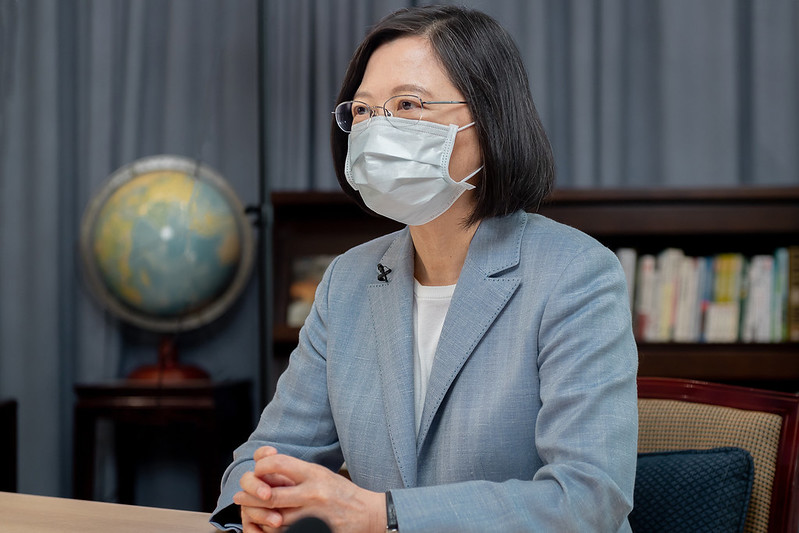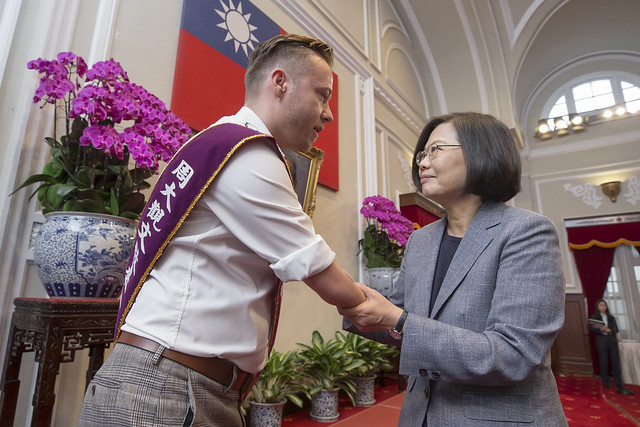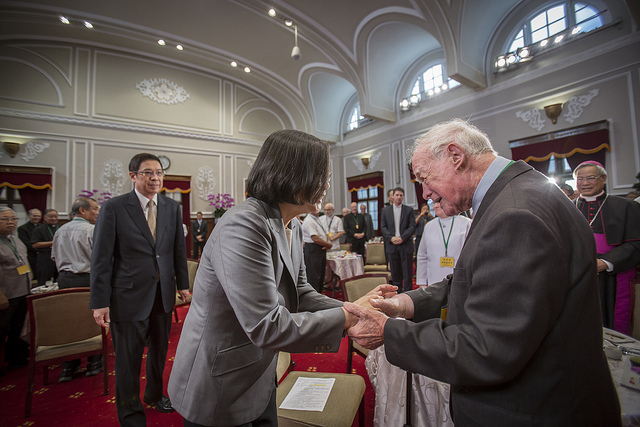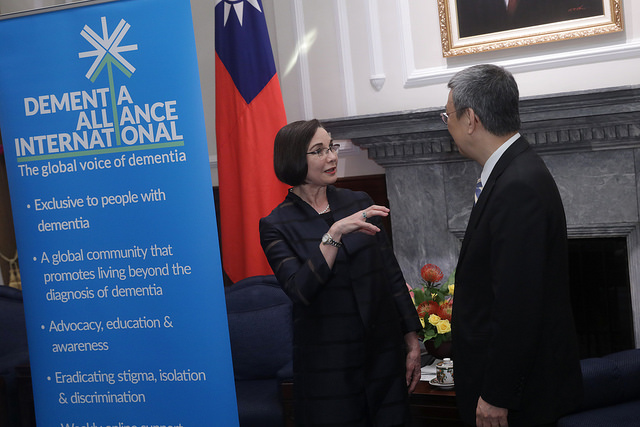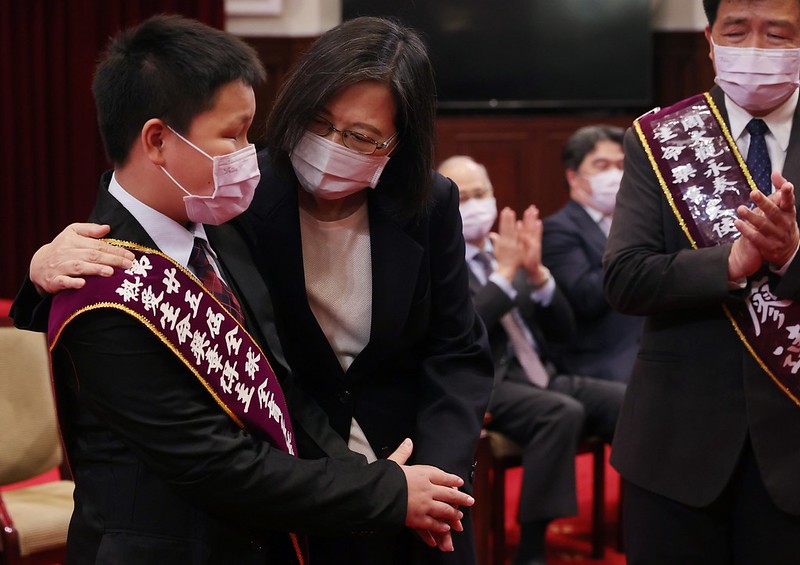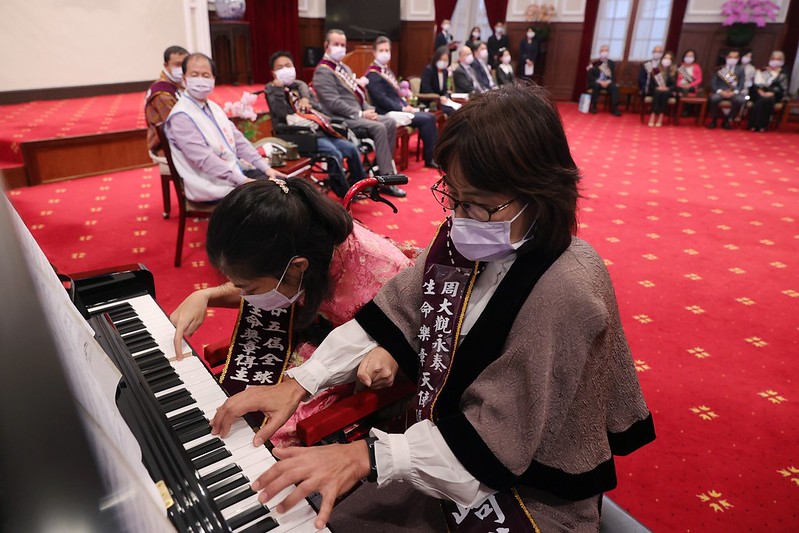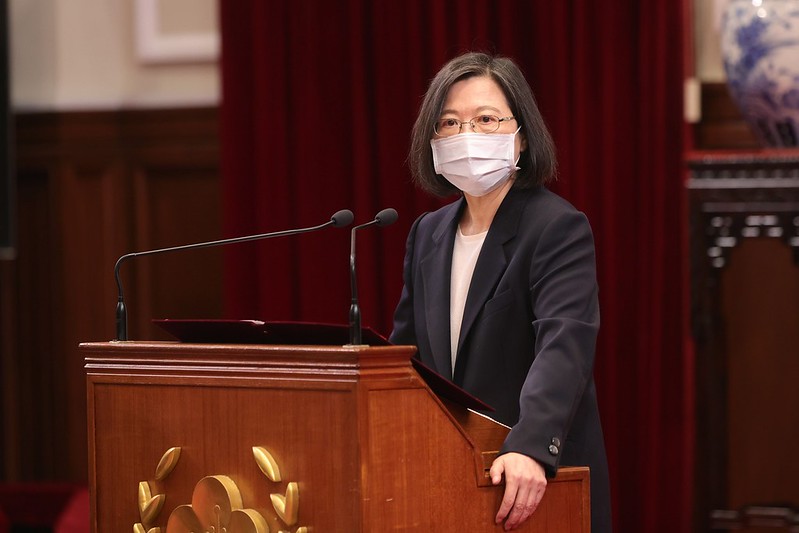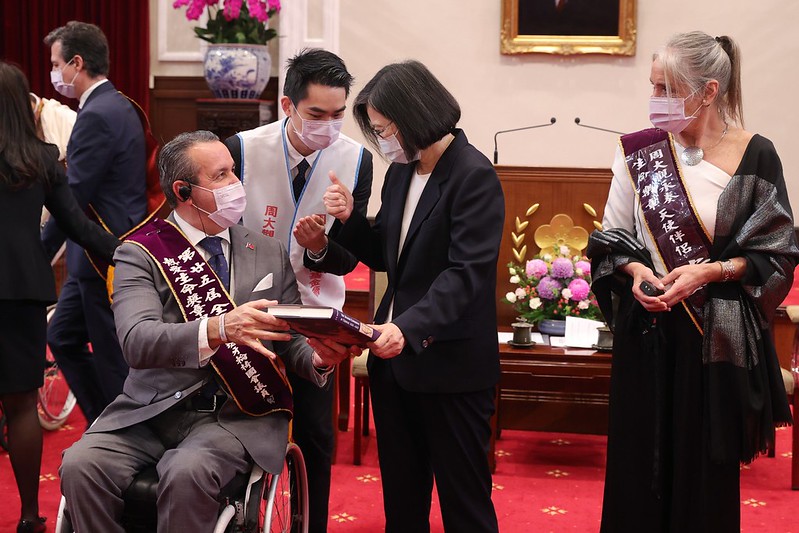News & activities
 News releases
News releases
On the morning of December 8, President Tsai Ing-wen met with the winners of the 25th Fervent Global Love of Lives awards. In remarks, President Tsai thanked all the winners for sharing their zest for life and for everything that they have done for Taiwan and the world. The president also said she hopes that all the winners will continue to bring positive energy to every corner of the world.
A translation of President Tsai's remarks follows:
I want to begin by congratulating all the medal winners. I recall that last year, in this same venue, I told Founder Chou Chin-hua (周進華) and Chairperson Guo Ying-lan (郭盈蘭) of the Chou Ta-Kuan Cultural and Educational Foundation that I looked forward to receiving overseas medal winners at the Presidential Office once the COVID-19 pandemic was contained. Today, I am very happy to see guests from home and abroad in Taiwan and at the Presidential Office. I warmly welcome you all.
Over the past 25 years, 416 individuals from 71 countries have been awarded Fervent Global Love of Lives medals. I would like to thank the Chou Ta-Kuan Cultural and Educational Foundation for its efforts in encouraging medal recipients and facilitating exchanges between Taiwan and countries around the world. This allows us to work together to advance our shared values.
Since I took office, combating drugs has been one of my administration's top priorities. We have seen Ms. Gloria Pachón, known as the mother of Colombia's antidrug movement, striving to combat drugs and corruption in her country and to promote antidrug education worldwide. Today, her son Mr. Juan Manuel Galán is here on her behalf. I am sure his speech in a moment will give us much food for thought.
Also here with us is Mr. Fatih Küçük, a Turkish artist who has traveled to rural schools in Taiwan and volunteered to paint murals. On this trip, he volunteered his services to Cifong Elementary School in Linbian Township, Pingtung County. He also donated money generated from the sale of his paintings to rural schools in Taiwan. We are very touched by and grateful for this act of kindness.
Ms. Iwasaki Kanae is a Japanese pianist who likes to say, "Even if I can only move one finger, I can still play the music of life." And our bright young musician Chou Hsuan-wei (周軒瑋) also said, "Don't just think about what your eyes can't see, but see with your heart the truth, goodness, and beauty of the world."
This is the same spirit with which young Chou Ta-kuan (周大觀) fought cancer, when he said that he still had one leg and wanted to stand on the Earth and walk throughout this beautiful world. Ta-kuan's passion for life is very much evident in every single one of the winners here today. We truly admire how you light up the world with your vitality and extraordinary contributions.
The film director Chu Chuan-lee (曲全立) has documented both the natural beauty of Taiwan and the work of more than 100 craftspeople. His Formosa 3D mobile movie vehicle travels all over Taiwan screening films that encourage children to care for the environment. Mr. Li Sheng-mao (李升茂) is known as a painter and a guardian of Taiwan's power supply. Having worked on the frontlines for Taiwan Power Company, making emergency repairs following outages, his ink paintings capture the arduous nature of this work and help people understand the contributions that many hardworking individuals make to Taiwan.
Every medal recipient has a moving story to tell. I want to thank you all for sharing your zest for life with us and for everything that you have done for Taiwan and the world. I wish the foundation and all the winners an even brighter future as you continue to deliver inspiration and positive energy to every corner of the world.

